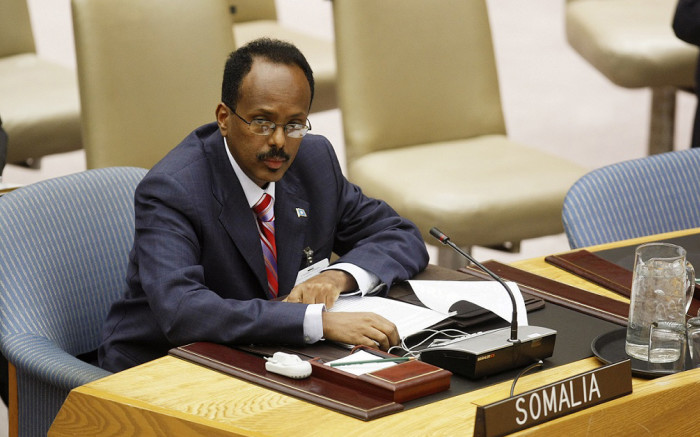Somali president signs law extending mandate for two years

Somalia's President Mohamed Abdullahi Mohamed has signed a controversial law extending his mandate for another two years, despite threats of sanctions from the international community
What you need to know:
- The president, in power since 2017, "signed into law the special resolution guiding the elections of the country after it was unanimously passed by parliament", reported state broadcaster Radio Mogadishu.
Somalia's President Mohamed Abdullahi Mohamed has signed a controversial law extending his mandate for another two years, despite threats of sanctions from the international community.
The president, in power since 2017, "signed into law the special resolution guiding the elections of the country after it was unanimously passed by parliament", reported state broadcaster Radio Mogadishu.
Somalia's lower house of parliament on Monday voted to extend the president's mandate - which expired in February -- after months of deadlock over the holding of elections in the fragile nation.
However the speaker of the Senate slammed the move as unconstitutional, and the resolution was not put before the upper house, which would normally be required, before being signed into law.
Speaker Abdi Hashi Abdullahi said it would "lead the country into political instability" and pose security risks.
The president, best known by his nickname Farmajo, and the leaders of Somalia's five semi-autonomous federal states had reached an agreement in September on indirect parliamentary and presidential elections in late 2020 and early 2021.
But it fell apart over how to conduct the vote, and multiple rounds of talks have failed to break the impasse.
The new law paves the way for a one-person, one-vote election in 2023, the first such direct poll since 1969, the year dictator Siad Barre led a coup before ruling for two decades.
A presidential election was due to have been held in February.
It was to follow a complex indirect system used in the past in which special delegates chosen by Somalia's myriad clan elders pick lawmakers, who in turn choose the president.
Mogadishu resident Abukar Osman Mohamed told AFP the extension was "illegal and it can lead the country into political crisis."
However another resident of the capital, Abdulkadir Ahmed Mohamed, supported the move given "regional state leaders couldn't find any solution."
Sanctions?
The international community has repeatedly called for elections to go ahead.
The United States, Somalia's main ally in recovering from decades of civil war and fighting Al-Qaeda-linked Islamists, said Tuesday it was "deeply disappointed" in the move to extend Farmajo's mandate.
"Such actions would be deeply divisive, undermine the federalism process and political reforms that have been at the heart of the country's progress and partnership with the international community, and divert attention away from countering Al-Shabaab," US Secretary of State Anthony Blinken said in a statement.
He said the implementation of the bill would compel the US to consider sanctions or other steps such as visa restrictions.
The European Union's foreign policy chief Josep Borrell also threatened "concrete measures" without an immediate return to talks on holding elections.
The United Nations Mission in Somalia (UNSOM), in a joint statement with EU nations, regional IGAD bloc and the United Kingdom, said they were "deeply concerned" and would not support the extension.
A coalition of opposition presidential candidates in a joint statement called it "a threat to the stability, peace and unity" of the country.
In February some opposition leaders attempted to hold a protest, which led to an exchange of gunfire in the capital.
Somalia has not had an effective central government since the collapse of Barre's military regime in 1991, which led to decades of civil war and lawlessness fuelled by clan conflicts.
The country also still battles the Al-Qaeda-linked Al-Shabaab Islamist militant group, which controlled the capital until 2011 when it was pushed out by African Union troops.
Al-Shabaab retains parts of the countryside and carries out attacks against government, military and civilian targets in Mogadishu and regional towns.
Somalia still operates under an interim constitution and its institutions, such as the army, remain rudimentary, backed up with international support.
The 59-year-old Farmajo - whose nickname means cheese - was wildly popular when he came to power in 2017.
The veteran diplomat and former prime minister, who lived off and on for years in the United States, had vowed to rebuild a country that was once the world's most notorious failed state.
However observers say he became mired in feuds with federal states in a bid for greater political control, hampering the fight against Al-Shabaab, which retains the ability to conduct deadly strikes both at home and in the region.





